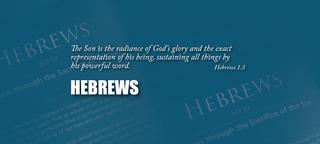
Hebrews
A comprehensive examination of the book of Hebrews, delving into it verse by verse (almost). I want to acknowledge and extend my appreciation to Pastor Aaron Budjen of livinggodministries.net for sharing his insights regarding the righteousness of God and the distinctions between the Old and New Covenants.
(Bấm vào đây để đọc tiếng Việt)
Hebrews 1:1-14
Hebrews 1 emphasizes the superiority of Jesus Christ over the angels. It affirms that God has spoken to humanity through His Son, who is the heir of all things and the Creator of the universe. Jesus is depicted as the radiance of God’s glory and the exact representation of His nature. In this way, Hebrews 1 introduces the central theme of the book, which is the supremacy of Jesus and the New Covenant.
Hebrews 2:1-18
The book of Hebrews, chapter 2, emphasizes the importance of paying close attention to the message of salvation brought by Jesus. It highlights Jesus’ superiority to angels and how, as the perfect Son of God, He became a human to identify with humanity and lead them to salvation. The chapter warns against neglecting this great salvation and encourages believers to remain faithful and not drift away from their faith. It also stresses Jesus’ role as the pioneer of salvation and the high priest who intercedes for believers. Ultimately, Hebrews 2 underscores the significance of holding firm to the message of salvation and not taking it lightly.
Hebrews 3:1-19
Hebrews 3 highlights the authority and superiority of Jesus as the High Priest and calls on believers to remain faithful and avoid the mistakes of unbelief made by the Israelites in the wilderness. It emphasizes the significance of faith and perseverance in entering God’s rest and attaining salvation.
Hebrews 4:1-16
Hebrews 4 emphasizes the importance of entering God’s rest through faith in Jesus Christ. It underscores the rest that God offers to those who believe, similar to the rest He took after creating the world. The chapter warns against disobedience and unbelief, drawing parallels with the Israelites in the wilderness who failed to enter the Promised Land due to their lack of faith. Hebrews 4 also highlights Jesus as the ultimate high priest who sympathizes with believers’ weaknesses and encourages them to approach God’s throne with confidence. It encourages the pursuit of God’s rest and promises help in times of need.
Hebrews 5:1-14
Hebrews 5 highlights the role of the high priest in the Old Testament and introduces Jesus as the ultimate high priest in the New Covenant. It emphasizes the qualities a high priest should possess, such as empathy and a calling from God. The chapter explains that Jesus was appointed by God as a high priest in the order of Melchizedek, surpassing the limitations of the Levitical priesthood. It encourages believers to mature in their faith and understanding, moving from milk to solid food in their spiritual journey. The chapter also warns against spiritual stagnation and underscores the importance of growing in faith and true obedience.
Hebrews 6:1-20
Hebrews 6 addresses the concept of spiritual maturity and the danger of falling away from the faith. It begins by emphasizing the importance of moving beyond the elementary teachings and progressing toward a deeper understanding of God’s plan for salvation through faith in Christ.
The chapter then issues a warning about the severe consequences of apostasy, the willful rejection of the faith once embraced. It describes how it is impossible to renew those who have fallen away, as it would require crucifying Christ again.
Hebrews 6 also provides reassurance to believers by highlighting God’s unchanging nature and faithfulness in fulfilling His promises. It mentions the role of Jesus as the high priest and mediator between God and humanity, securing hope for those who put their trust in Him.
Hebrews 7:1-28
Hebrews 7 focuses on the character and significance of Melchizedek, a mysterious figure from the Old Testament. The chapter highlights Melchizedek’s unique traits, such as being a “king of righteousness” and a “king of peace” with no recorded genealogy. It emphasizes that even Abraham, the forefather of the Israelites, paid tithes to Melchizedek, indicating his superiority.
The key point of Hebrews 7 is the superiority of the Melchizedekian priesthood over the Levitical priesthood. It explains that Jesus, as a high priest in the order of Melchizedek, surpasses the Levitical priests. This transition from the Levitical to the Melchizedekian priesthood signifies a change in the law, emphasizing the eternal and superior nature of Christ’s priesthood.
Overall, Hebrews 7 underscores the significance of Melchizedek and how Jesus fulfills the role of a superior and eternal high priest, bringing about a better covenant.
Hebrews 8:1-13
Hebrews 8 discusses the superiority of the new covenant established by Jesus compared to the old covenant. It emphasizes that Jesus serves as the high priest in the heavenly tabernacle, offering a better covenant with better promises. This new covenant is characterized by a direct relationship with God, as His laws are written on the hearts and minds of believers. Unlike the old covenant, it promises forgiveness and the remembrance of sins no more. The chapter highlights the flaws of the old covenant and concludes that the new covenant, through Jesus, provides a superior and everlasting way to draw near to God.
Hebrews 9:1-28
Hebrews 9 discusses the symbolism and limitations of the earthly tabernacle and its rituals under the Old Covenant. It describes the layout and furnishings of the tabernacle, detailing the Holy Place and the Most Holy Place. The chapter emphasizes the annual Day of Atonement, where the high priest offered sacrifices for his sins and those of the people. The rituals involving the Ark of the Covenant, the golden altar, and the golden lampstand are explained. The passage underscores the temporary and symbolic nature of these rituals, pointing to the need for a more perfect and eternal solution, ultimately fulfilled in Christ’s sacrifice in the heavenly sanctuary.
Hebrews 10:1-39
Hebrews 10 emphasizes the superiority of Christ’s sacrifice under the New Covenant compared to the repeated sacrifices of the Old Covenant. The author highlights that the sacrifices offered year after year cannot perfect those who come to worship. Instead, Christ’s sacrifice is presented as a once-for-all offering that effectively takes away sins. The chapter encourages believers to hold firm to their faith, drawing attention to the confidence they have to enter the Most Holy Place through the blood of Jesus. The author warns that sinners can no longer offer sacrifices, so the only acceptable solution is faith in Christ. The chapter concludes with a call to persevere in faith and not shrink back, as the righteous live by faith.
Hebrews 11:1-40
Hebrews 11 is often referred to as the “Faith Chapter.” In this chapter, the author highlights the exemplary faith of various individuals from the Old Testament. It emphasizes that faith is the assurance of things hoped for and the conviction of things not seen.
